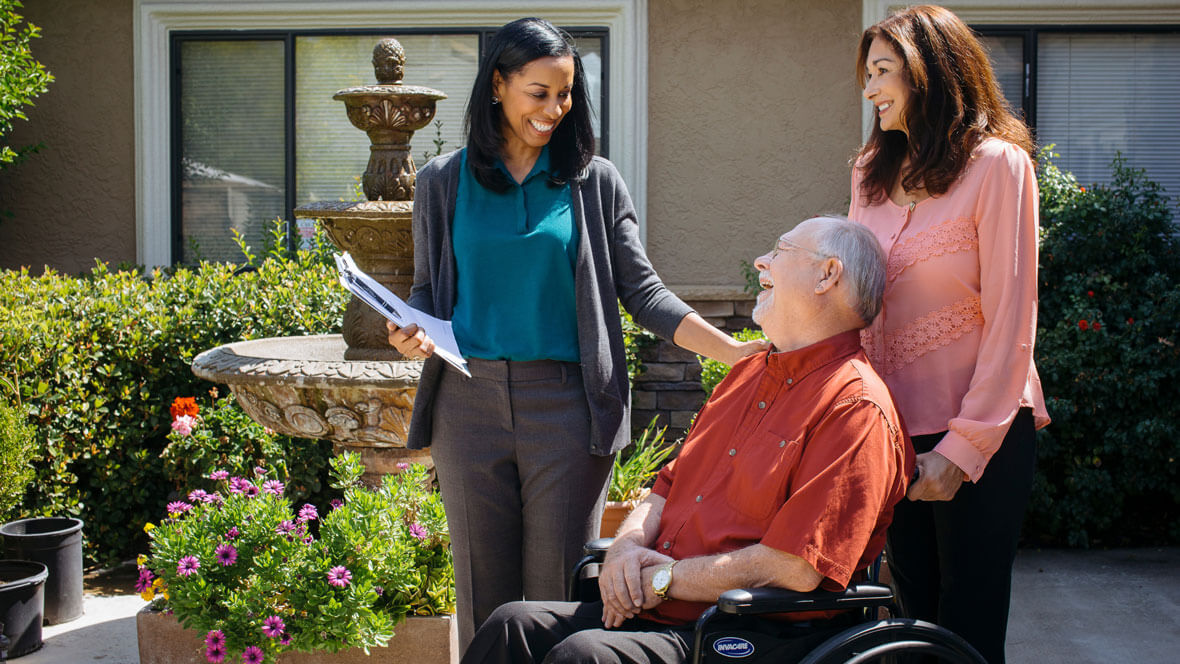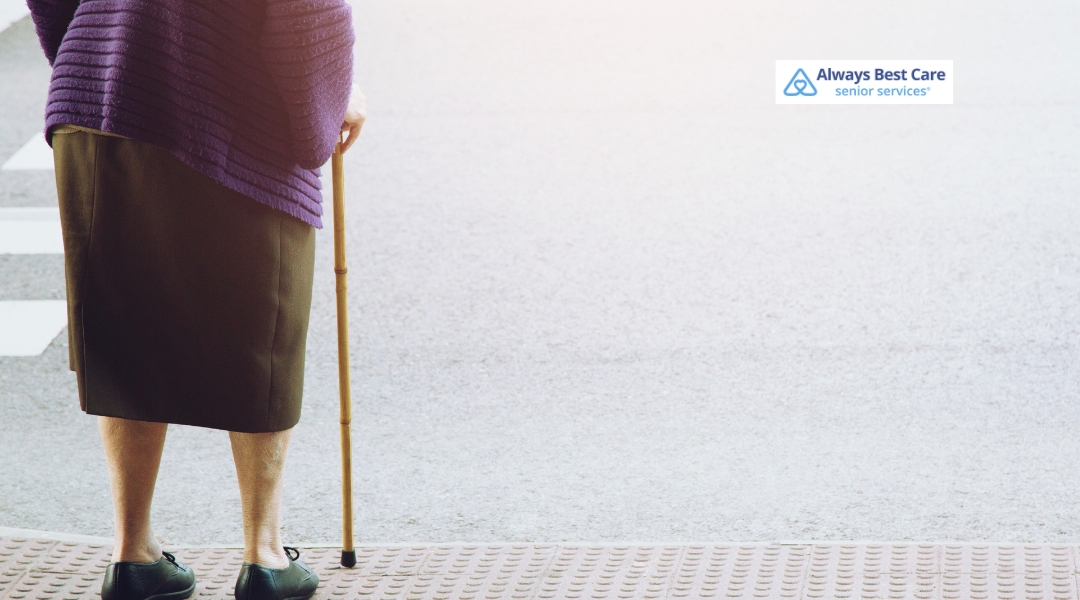Parkinson’s Disease: A Caregiver’s Approach to Intervention

Parkinson’s Disease (PD) can be a very challenging sickness for both the patient and the caregiver to take on. Because it causes a range of mental, emotional, and physical symptoms, there can be a lot to keep track of.
Always Best Care is here to break down the complexities and confusion to help you, the caregiver, understand how to best help your loved one.
So, let’s dive into this comprehensive guide about how to take care of your patient struggling with PD.
Table of Contents
Understanding Parkinson’s Disease
PD, a neurodegenerative disease, has a range of symptoms. Physically, it often causes loss of balance, muscle stiffness, and tremors. Emotionally, it is linked to depression, anxiety, and mood swings. Mentally, it can take a toll on your patient’s cognitive abilities, causing trouble problem-solving and mild memory loss.
Recognizing When to Seek Help
As a caregiver, one of your most important functions is recognizing when your loved one needs help with their Parkinson’s.
Any increase in symptoms or the onset of early symptoms warrants a trip to your medical professional.
Let’s dig deeper into the signs that your patient is experiencing the onset of Parkinson’s disease.
Identifying the Early Signs
- Motor symptoms. Patients with PD experience motor symptoms like trouble balancing, muscle tension, and slow movement. They often also exhibit signs like slight tremors in their hands or changes in handwriting.
- Non-motor symptoms. The emotional toll that Parkinson’s takes on its patients includes experiencing depression, anxiety, and loss of sleep. Sometimes these can be accompanied by other physical symptoms like constipation, loss of smell, or voice changes.
- Cognitive changes. In addition, you may notice your loved one struggling with mild memory loss or trouble problem-solving.
The Value of Early Intervention
The sooner you can catch Parkinson’s, the better. Early diagnosis allows easier symptom management, medication organization, and increased quality of life.
In addition, the earlier you catch Parkinson’s the more therapists like physical therapists, speech therapists, and occupational therapists can help your patient adapt to life and make changes that ease the physical, mental, and emotional burden.
Consulting a Specialist
It’s also important to consult with a neurologist for an evaluation and diagnosis of Parkinson’s. Your neurologist can provide an official clinical diagnosis, as well as confirm it through an MRI or DAT scan.
After that, you’ll need to arrange a plan with the neurologist for your patient to thrive. This can include things like medication, future planning, and changes in daily life.
Developing a Comprehensive Care Plan
This care plan will be the cornerstone of your work with your loved one. Through it, you’ll have a guideline for how to handle each situation and your patient will know what to expect.
- Medication. You’ll want to make sure your patient is on the best medication for their body and monitor their physical response to the medication.
- Therapy. Including practices like seeing a physical therapist, occupational therapist, or speech therapist can make daily life much easier for your patient. You can also take advantage of joint sessions with both a physical therapist and an occupational therapist.
- Changes in daily life. Part of battling Parkinson’s is making the necessary changes in life. These can include adjustments in diet, exercise, and activities to help mitigate the disease.
- Support services. As the caregiver, you need to take care of yourself, too. Embrace the support services around you, whether they be support groups, counseling, or educational forums.
While it may feel overwhelming to care for someone with PD, it is a task well worth the time and effort. Caregivers fulfill essential, lifegiving roles for Parkinson’s patients.
By monitoring your patient for symptoms of PD or an increase in the effects of PD, you will keep your patient safe and healthy.
Creating a Supportive Environment
PD patients need a home environment where they can thrive. As a caregiver, you can help them achieve this by adding railings, ramps, and other home features which will prevent falls.
In addition, you can nuture them by creating a supportive environment. Whether its through verbal, physical, or another form of encouragement, your role as a friend and support is essential.
Managing Medications
One area of caregiving that can feel overwhelming is managing medications. Using a medication log may help you keep track of when and how many medications your patient has taken each day.
Incorporating Physical Activity and Nutrition
While Parkinson’s can cause a range of lifestyle changes, some positive ones you and your loved one can make together include physical activity and diet changes.
Maintaining a consistent exercise routine and incorporating activities that target wellness with Parkinson’s can make a big difference both in symptom management and in positive spirits.
You can also help promote your patient’s cognitive function by encouraging them to eat fruits, vegetables, and whole grains. All of these foods are nourishing and promote healthy brain activity.
Addressing Emotional and Cognitive Changes
Keeping track of your patient’s emotinal state is just as important as keeping track of their physical state. As an encourager, you can uplift them with positive words and help them maintain cognitive function through conversation and activities.
Navigating Healthcare Appointments
You should also be proactive and prepared for each healthcare appointment your patient has scheduled. At these appointments, ask questions and seek clarity on issues that are confusing or complex.
Your healthcare provider is here to support both you and your loved one at the appointment, so don’t hesitate to embrace the extra help.
Leveraging Community Resources
You need to take care of yourself, too. Whether that’s through counseling or attending a support group, take advantage of the resources available. If you are healthy mentally, you can have that essential positive impact on your patient.
At Always Best Care, we believe in the health and well-being of both the patient and the caregiver. Our resources are designed to relieve pressure on both parties. If you need time off, we’re here to help.
Planning for the Future
Finally, a reliable future plan is key for the success and comfort of any PD patient. With an excellent future plan, you can conquer each new challenge as it arises.
You may design this plan with your healthcare provider or using your knowledge as a caregiver. Either way, Always Best Care is here to help you execute the plan in a smooth, comfortable way.
At Always Best Care, we put our patients and their relationships first. As a caregiver, you can trust us to guide you along the way and offer the necessary support to both you and your patient. If you’re ready to step up your plans and caregiving for your loved one, don’t hesitate to contact us today.
Enhance Safety and Comfort for Your Loved One with Parikinson’s Today!
Always Best Care provides quality senior services tailored to your needs and abilities. Located at 10455 Jefferson Hwy Suite 110, Baton Rouge, LA 70809, United States, contact us today at +12255138656 to schedule a care consultation and learn how we can assist you in safely and comfortably aging in place!





